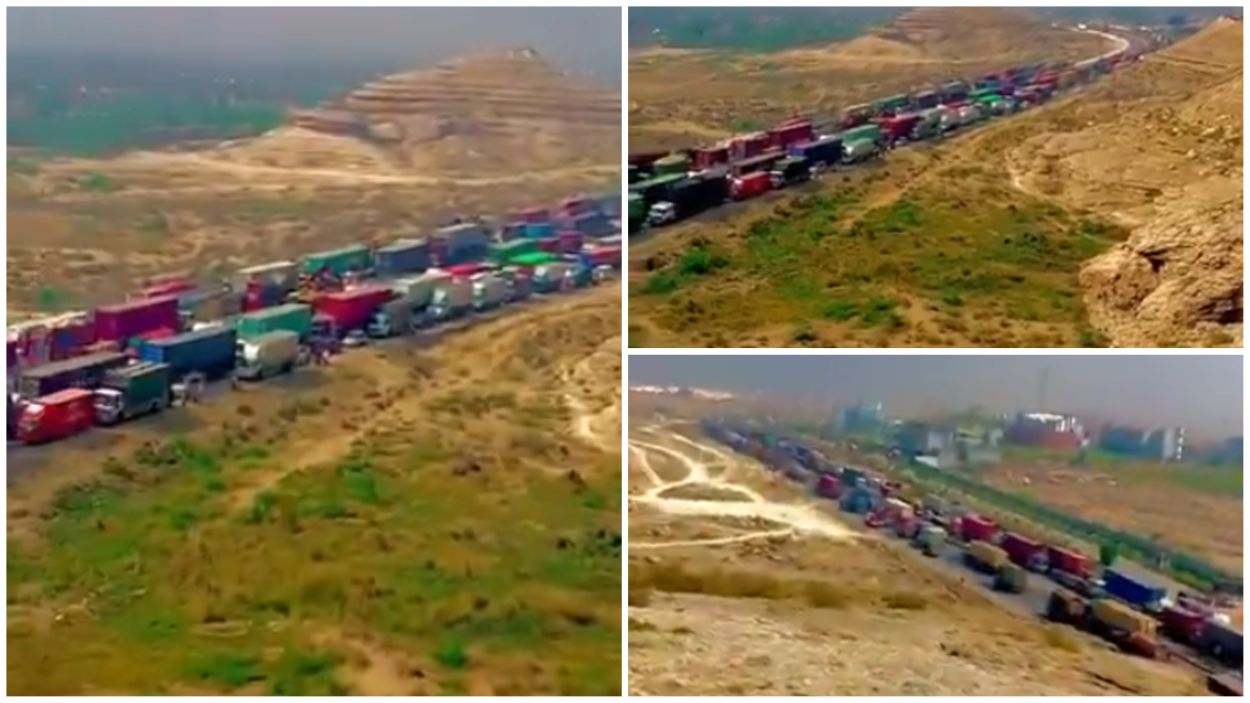A six-day blockade on Pakistan’s National Highway near the Sukkur-Larkana bypass in Sindh, starting on April 18, 2025, has halted trade and industrial activity, leaving over 3,500 vehicles stranded and disrupting supply chains nationwide.
Over 3,500 trucks carrying export consignments, perishables, and industrial inputs remain stranded near Sukkur, while container congestion worsens at Karachi Port. The Overseas Investors Chamber of Commerce and Industry (OICCI) has warned that the ongoing disruption could trigger widespread operational shutdowns, job losses, and a costly recovery.
Exporters are missing delivery deadlines, risking international contracts and damaging Pakistan’s reputation as a dependable trade partner.
Despite our restraint, it’s disappointing if others are playing into someone else’s hands,” said CM @MuradAliShahPPP . “PPP knows how to protest, we’ve stood up to dictators. But with canal project halted & no approval given, why disrupt public life by blocking roads? pic.twitter.com/OWqQQTO1PZ
— Sindh Chief Minister House (@SindhCMHouse) April 22, 2025The Fertiliser Manufacturers of Pakistan Advisory Council (FMPAC) reported 600 fertiliser trucks stranded at plants in Daharki, Mirpur Mathelo, and Port Qasim, with 500,000 tonnes of urea immobilised. FMPAC Chairman Sher Shah Malik urged the Sindh chief secretary to take immediate action, warning of disruptions to the Kharif season’s crop yields. The Agriculture Ministry echoed concerns, highlighting potential food security risks if urea shortages persist.
Broader Trade Disruptions
The blockade has immobilised 800 oil tankers and 250 potato export containers, exacerbating fuel and food supply risks. Critical to Pakistan’s economy, textile exporters face vessel schedule delays, threatening millions in losses. United Business Group’s Khalid Tawab appealed to Prime Minister Shehbaz Sharif, emphasising the blockade’s impact on fuel distribution. The protests, rooted in opposition to canals diverting Indus water, reflect Sindh’s long-standing water scarcity concerns.
The blockade’s economic toll, potentially costing billions, underscores Pakistan’s fragile supply chain infrastructure, exacerbated by protests over water allocation (e.g., $3.3B Green Pakistan Initiative). The government’s delayed response risks escalating losses, as seen in stranded fertiliser critical for 27.8M tonnes of annual wheat production.






